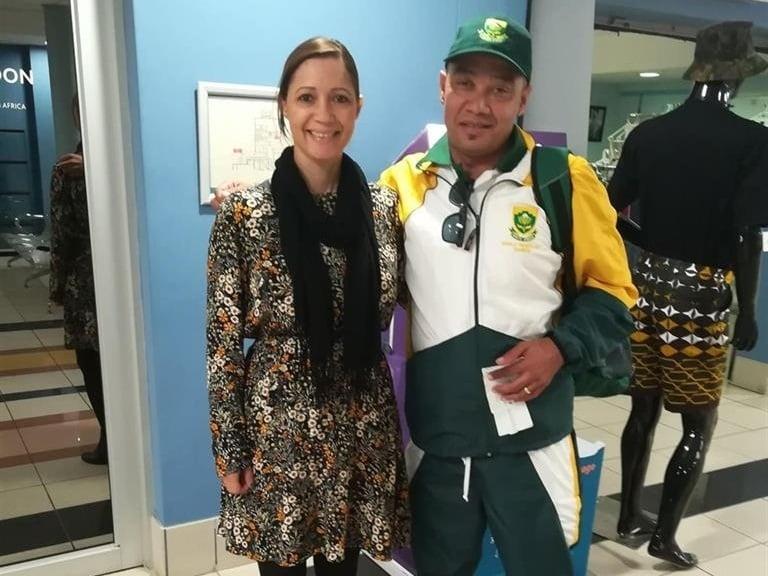Africa-Press – South-Africa. In 2018, while waiting for a liver transplant, Winston Baatjies decided to improve his fitness and took up cycling and squash.
Today the 56-year-old is part of a 40-strong team of South Africans attending the World Transplant Games (WTG) in Perth, Australia, this weekend.
He will compete in cycling and squash which, he says, “have provided me with hours of pleasure and pain over a number of years”.
Baatjies trains with The Bicycle Company cycling club in his home city of Pretoria, and was coached by squash professional Kelvin Ndlovu as part of his preparations for Perth.
The transplant games happen every second year, and are intended to be “a celebration of new life”, according to the SA Transplant Sports Association, demonstrating the benefits of successful organ transplantation and to encourage people to register as organ donors.
For transplant recipients, it is also an encouragement to maintain a higher level of fitness.
Due to the Covid-19 pandemic, this year’s edition is the first summer sport games to be held since the 2019 games in Newcastle, England.
In that event, the SA team ended sixth on the medals ladder, out of 43 competing countries, partly reflecting the strict qualifying standards local athletes must attain to be eligible to travel to the world games.
“Those who get there are pretty good,” says Cape Town heart transplant recipient Mark Agnew, who will participate in discus and shot put in Perth.
He said:
Agnew, 60, had his transplant in March 2013.
He played rugby “with the old farts in the fourth league” until he was 45, ran half-marathons and completed 13 cycle tours in the city.
In 2012, “things turned pear-shaped as his heart function started deteriorating, and he “went downhill pretty quickly”.
After his transplant, he “started exercising to get fit as quickly as possible”, discovering that the next national transplant games were scheduled for Stellenbosch, and decided to participate.”
East Londoner Carlo Prince, 45, was a complete novice at sport until his kidney transplant in 2011. Now he will represent the country in pétanque – a game similar to lawn bowls – and darts.
Diagnosed with end-stage kidney disease, he hardly had any energy for basic daily activities, let alone playing sports, and was on semi-permanent dialysis for 18 months before his transplant.
He was invited to join the transplant games fraternity by a fellow donor kidney recipient, playing darts and pétanque for the first time ever.
With an air of understatement, Prince said: “To my surprise, I was not bad at all in the two sports.”
Baatjies says his participation in the games reflects his gratitude to be alive, and especially his appreciation to his donor and his donor’s family for the gift of life, sentiments echoed by all recipients interviewed.
For More News And Analysis About South-Africa Follow Africa-Press






